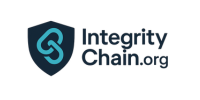Loan and Grant Misuse in Startups: How Founders Can Stay on the Right Side of Funding Rules

Startups thrive on funding — whether it's venture capital, government grants, or emergency loans. But when funds earmarked for innovation, job creation, or R&D are quietly diverted to unrelated purposes, it crosses the line from mismanagement into fraud.
In the aftermath of the pandemic, regulators have cracked down on the misuse of public and private funding. For startup founders and executives, understanding the fine print—and how misuse often surfaces through whistleblowers—is critical to protecting both your company and your personal liability.
What Is Loan and Grant Misuse?
Loan and grant misuse occurs when startup funds received under specific conditions or programs are used for unauthorized or undisclosed purposes.
Common examples in startups include:
- Using R&D grants to pay marketing salaries or rent
- Diverting payroll loans to executive bonuses or investor repayments
- Misrepresenting the use of funds in pitch decks or investor reports
- Claiming expenses for milestones never completed
- Applying for multiple grants or loans with duplicate claims
This behavior not only breaches the terms of funding agreements—it can also trigger civil penalties, criminal charges, and long-term reputational damage.
Why It Happens in Startups
Startups are often under intense pressure to stretch cash and report progress. Founders may not always intend to defraud, but blurry lines, vague invoices, and casual accounting often become the norm.
Other reasons include:
- Lack of dedicated compliance officers
- Poor understanding of government funding terms
- Temptation to “borrow” from restricted funds during tough months
- Informal finance operations with minimal oversight
- Belief that “everyone does it” and no one checks
But regulators, auditors, and investors increasingly do check, and many major fraud cases begin with a whistleblower raising internal concerns.
Whistleblower Triggers
In most cases, whistleblowers are not external watchdogs, but employees who notice red flags such as:
- Grant-funded projects with no visible output
- Payroll charged to a grant, but staff working on unrelated workstreams
- Unusual requests from leadership to “reclassify” expenses
- Multiple companies under one founder applying for similar grants
- Use of pandemic-era loans to repay investors or cover founders’ expenses
When internal concerns are ignored or punished, whistleblowers may report to funding bodies (e.g., SBA, NIH, or NSF), the DOJ, or the press.
Real-World Cases
- A startup CEO applied for a PPP loan, claiming 50 employees. The company had 12. Funds were used to pay down a convertible note. The case resulted in charges and clawbacks.
- A healthtech firm claimed biotech R&D progress to justify an NIH grant. In reality, the funds were used for marketing and a rebrand. An internal report led to a full audit and investor exits.
- In one of 2025’s most prominent cases, a startup inflated its financials to secure a climate-tech loan, which was routed through shell entities. The founders are currently facing trial.
Risks for Founders and CXOs
Loan and grant misuse is not just a compliance issue—it can lead to:
- Personal liability for misused public funds
- Investor lawsuits for the misleading use of funds
- Loss of future eligibility for government support
- SEC scrutiny if the reporting was misleading during fundraising
- Whistleblower lawsuits under the False Claims Act
Even if the amounts are small, intent and misrepresentation matter.
What Founders Can Do to Prevent Misuse
- Understand the terms
Before applying for any government or institutional funding, ensure your leadership team fully understands what the money can and cannot be used for. - Designate a compliance officer or advisor
Even a part-time consultant can help you track eligible expenses, milestones, and reporting obligations. - Use separate accounts for restricted funds
Don’t mix grant money with general operating funds unless explicitly allowed. - Track deliverables and documentation
Whether it's hiring, research, or job creation, keep a file of invoices, timesheets, and outcomes. - Educate your finance and product teams
Ensure that everyone is aware of what is and isn’t covered. - Encourage internal reporting
Create safe pathways for staff to report suspected misuse. Ignoring a quiet concern can lead to a very loud scandal.
If Misuse Has Occurred
- Conduct an internal audit immediately
- Notify your board or legal counsel before external stakeholders
- Consider self-reporting to the grantor or lender—it can mitigate penalties
- Cooperate fully with any follow-up or investigation
- Protect any whistleblower involved and prevent retaliation
Transparency and accountability are often the only way to salvage trust with investors, partners, and regulators.
Final Thoughts
Grants and loans are powerful tools for scaling a startup—but only if used with integrity. In today’s environment, where whistleblowers are protected and regulators are active, misuse isn't just unethical—it's self-sabotage.
Founders need to view funding terms not as fine print, but as strategic boundaries. When your culture rewards transparency and builds systems that prevent misuse, you protect your runway, your reputation, and your right to raise more.



